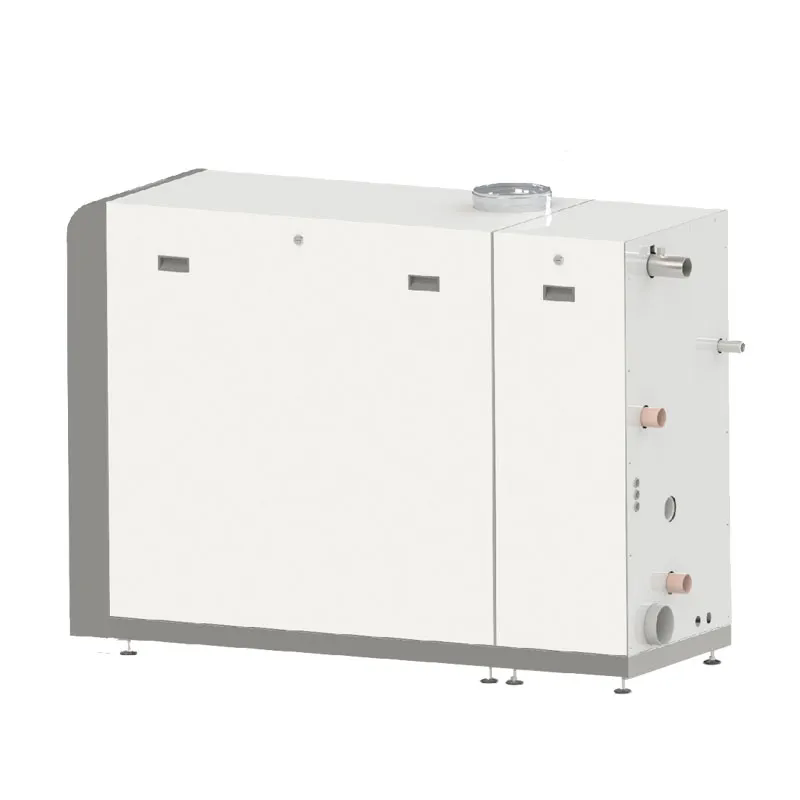A Comprehensive Guide to Hybrid Boilers: Efficiency Meets Sustainability
2024-10-16
As energy prices rise and environmental concerns grow, more homeowners and businesses are turning to hybrid boilers as a solution. Combining the reliability of traditional heating systems with the energy-saving benefits of modern technology, hybrid boilers offer the best of both worlds. If you are looking for an efficient and eco-friendly way to heat your space, this guide will walk you through everything you need to know about hybrid boilers—how they work, their benefits, and whether they are the right choice for your needs.
What Is a Hybrid Boiler?
A hybrid boiler system combines two different heating technologies—typically a gas or oil boiler and an electric heat pump—to efficiently manage heating based on demand and outdoor temperature. The system switches between the two energy sources to achieve maximum efficiency, reducing fuel consumption and operational costs.
The core idea of hybrid boilers is flexibility:
- When temperatures are mild, the heat pump operates efficiently using renewable energy sources.
- When temperatures drop, the gas or oil boiler kicks in to provide the high heat output required for colder conditions.
How Does a Hybrid Boiler Work?
A hybrid boiler system uses smart controls to automatically switch between the two heating sources based on the external temperature, energy cost, and load demand. Here’s how the process works:
1. Mild Weather:
The heat pump heats the water for space heating and hot water needs since it works efficiently in mild conditions.
2. Cold Weather:
When the outdoor temperature drops, the boiler kicks in to supplement the heat, providing higher temperatures and faster heating.
3. Smart Optimization:
The system continuously evaluates energy prices and environmental conditions, ensuring that the most economical and energy-efficient source is used at any given time.
Components of a Hybrid Boiler System
- Gas/Oil Boiler: Provides backup or high-demand heating when required.
- Electric Heat Pump: Extracts heat from the air or ground for energy-efficient heating.
- Smart Controller: Automatically manages which heating source to use, optimizing for efficiency and cost.
- Thermostat and Sensors: Monitor indoor and outdoor temperatures to adjust heating output.
Benefits of Hybrid Boilers
1. Energy Efficiency
Hybrid boilers reduce energy consumption by using the heat pump during mild conditions, saving on fuel and electricity. This makes them more efficient than traditional gas-only or electric-only heating systems.
2. Lower Operating Costs
By switching between energy sources based on availability and demand, hybrid boilers can help homeowners and businesses save money on energy bills.
3. Eco-Friendly Heating
With an emphasis on renewable energy through heat pumps, hybrid boilers have a lower carbon footprint compared to traditional heating systems.
4. Reliable Performance in All Conditions
The combination of heat pump and boiler ensures consistent heating, even during extreme weather when a heat pump alone might struggle to meet demand.
5. Smart Controls for Convenience
Hybrid boilers come with smart control systems that automate heating decisions, providing both convenience and efficiency. Users can monitor and control the system remotely via apps or home automation tools.
6. Eligible for Government Incentives
In some regions, installing a hybrid boiler may qualify for government grants or rebates, making the transition to a more sustainable heating system financially attractive.
Applications of Hybrid Boilers
- Residential Homes: Perfect for households aiming to lower energy costs while maintaining comfort.
- Commercial Buildings: Hybrid systems can efficiently heat large spaces, such as offices and hotels.
- Schools and Hospitals: Places that require consistent, reliable heating benefit from the flexibility of hybrid systems.
- Industrial Facilities: Hybrid boilers offer a cost-effective solution for operations that need continuous heating, such as manufacturing plants.
Challenges of Hybrid Boilers
1. Higher Initial Cost:
Hybrid systems tend to be more expensive to purchase and install compared to traditional boilers.
2. Space Requirements:
Since the system involves both a boiler and a heat pump, it requires more space for installation.
3. Complex Installation:
Proper installation requires professional expertise to ensure the components are correctly integrated and optimized.
4. Heat Pump Limitations:
In extremely cold climates, the heat pump may become less efficient, relying more on the boiler and reducing energy savings.
Is a Hybrid Boiler Right for You?
Before investing in a hybrid boiler, consider the following:
- Climate: If you live in a region with mild winters, a hybrid system will yield significant energy savings.
- Budget: Although the initial investment is higher, the long-term savings can offset the cost.
- Space Availability: Ensure you have sufficient space for the boiler, heat pump, and associated controls.
- Energy Priorities: If your goal is to reduce your carbon footprint and qualify for government incentives, a hybrid boiler is a smart choice.
How to Maintain a Hybrid Boiler
Proper maintenance ensures the longevity and efficiency of your hybrid boiler system:
1. Annual Servicing: Schedule professional maintenance to check both the boiler and heat pump components.
2. Filter Cleaning: Clean or replace filters to maintain optimal air and water flow.
3. Monitor Smart Controls: Ensure the smart controls are working correctly by testing sensors and thermostats.
4. Inspect for Leaks: Check pipes and connections regularly to prevent leaks or pressure issues.
5. Keep the System Updated: If the hybrid boiler has firmware or software updates, install them to ensure smooth operation.
Conclusion
A hybrid boiler offers an excellent combination of energy efficiency, cost savings, and environmental benefits. By intelligently switching between a traditional boiler and an electric heat pump, these systems provide reliable heating for homes and businesses in any season. While the initial investment may be higher, the long-term benefits—both financial and ecological—make hybrid boilers a worthy upgrade for those committed to sustainability and efficiency.
If you’re planning to replace or upgrade your heating system, a hybrid boiler might be the perfect fit. Make sure to consult with an HVAC professional to determine the best system configuration for your needs and enjoy the benefits of efficient, reliable, and eco-friendly heating!



